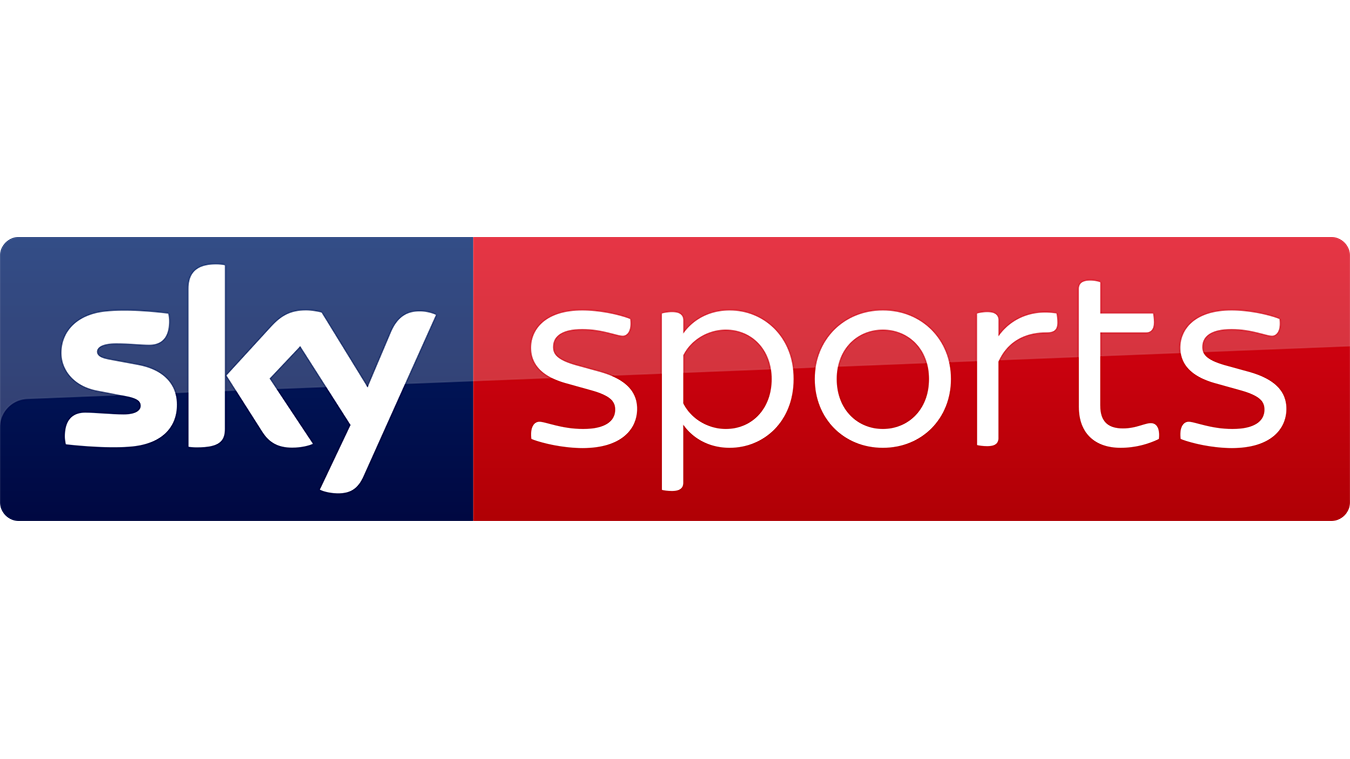Hayley McQueen
Job title Sports broadcaster
Employer Sky Sports

Screen queen
Sky Sports News presenter and broadcaster Hayley McQueen is one of the most recognisable faces in sports broadcasting journalism. But unbelievably, the journalist had no immediate intentions to be in front of the camera, instead preferring to be behind it!
Here, she reveals how her career has unfolded which led her to be siting at the Sky Sports News desk, a well as providing some top tips to those who would love a similar job…
“It doesn't matter if you don't know what you want to do”
I was very sporty when I was younger and I was into the arts, but I didn't think I could make a career out of art or drama. Initially I took a year out to study art and design with the idea of possibly becoming an arts teacher, but I genuinely had no idea what I wanted to do.
“Get a degree, but don't worry too much about which one you do”
I don't think the course I did [BA Hons PR, Marketing and Journalism] exists anymore, but I wanted a varied degree opposed to Media Studies, Journalism or English - I didn't want to restrict myself to just one thing for the three or four-year duration of my degree. I wasn't sure exactly what I wanted to do, so I thought there must be something I would enjoy in either PR, marketing or journalism. I thought I would get a good idea for which strand suited me best. Had I known I was going to get into presenting, production and journalism I might have done a more specific course, but I don't think it's essential to study journalism or media studies, you just have to develop skills in whatever you choose to do. Specific training can come later.
“Work experience is essential”
It has made a difference in my career. I did work experience within sports broadcasting constantly from my second year of university onwards and that's what led to my first job. You can learn more about the industry by getting experience. I did a few sports broadcasting placements during holidays on local radio and I worked on a couple of magazines. My longest placement was with This Morning, when Richard and Judy were there. I did that four seven or eight months. I also worked at a local television station and on a community scheme for my local football club... everywhere! But I just wanted to try everything to figure out what it was I wanted to do. Initially I thought I wanted to get into fashion writing but I realised that it wasn't for me. By going into a fashion magazine and realising it wasn't for me it narrowed my options but opened my eyes to new ones I hadn't considered before.
“Try as many different things as possible”
Even if you think you might not be suited to something, try it anyway. The people you meet along the way could help you somewhere along the line in your career. I still deal with people now ten years after doing work experience with them. The people you meet when you do work experience, or those above you when you start out in your career might be someone you're working alongside years later, or they might move on and leave positions available or even want new people around them in their new role. For example, you might do work experience with someone at the BBC who then moves to ITV; they might think you might be more suited to that specific broadcaster. Quite often people go back through people they've worked with or who have had on internships for employment. For example, the cousin of my first boss, at Middlesbrough FC, went on to become chief executive at the FA. The FA were then looking for someone to host at Club Wembley and he got in touch with me, and that was a contact I made at my first job when I wasn't anybody! So, people you meet along the way can be very important.
“Sports broadcasting journalism is increasingly competitive”
I think I was lucky in that there weren't many good females doing what I wanted to do. I didn't start out actually wanting to be a presenter, so I helped out behind the scenes and worked in production for three years at a cable tv station, as well as delivering programmes for a community football scheme for a year. I reported for a couple of years and then got into presenting. Had I started wanting to be a presenter I reckon I would have found it a lot tougher, so try not to narrow your options. Try your hand at everything and who knows what might come up. People look to work at Sky Sports thinking we're young and edgy. We're a very young company and different to other broadcasters. If you look at presenters such as Ed Chamberlain, Sarah Jane Mee and Julian Warren, they're all very keen to promote people in the company and work their way up. So it might be you start in a very junior position, but the company is loyal to you if you're loyal to them.
“There are some great role models for women in sport's journalism”
It has been an amazing period for a Clare Balding. When you see someone like her doing the job she did during the Olympics, you really look up to people like that. There are a lot of women at Sky Sports News and Sky News who have worked their way up, too. Vicky Gomersall is a great example of someone who has worked her way up. She is approaching 40 but is still chosen as a no.1 host to present flagship programmes. You're always working up towards something. Claire Tomlinson is another. Her lifestyle is different now and she does a lot of big hosting events away from Sky, but for years we looked up to her as one of the main female presenters in football, like Rebecca Lowe, Gabby Logan and Kelly Dalglish. Claire worked her way up from a press officer at a football club and she's been a main figure at Sky.
“Expect the unexpected”
You go to work every day fully in sports broadcasting prepped but you never are. You might have read up on potential breaking stories and researched all the sports going on, prepared for every eventuality and then something else happens. I've been on air when people have passed away, which is obviously pretty shocking and sad. I've also worked on the last day of the football season, when there is all the drama. You have to be professional throughout, even if it means leaving your own allegiances to one side. I've worked at finals and outside broadcasts which can also be very unpredictable and challenging. I used to work at Manchester United, where you would interview people immediately after games. Now, at Sky, I have to be a lot more impartial, so each job has it's own challenges.
“Love sport”
Football has been my whole life. Interviewing people who many people look up to as heroes and idols is a huge privilege. I see them as normal people, but sometimes you still have to pinch yourself. I must have interviewed Sir Alex Ferguson 40 or 50 times, but each time I have to think it could be my last. I've interviewed some of the greats of world football. Cristiano Ronaldo was always very good. He's young, quirky and when I interviewed him – in 2006 and 2007 – he was on the cusp of absolute greatness. He was fun and quite flirty, he would always notice if you were wearing something new. He was always in such high demand he was always willing to talk to us, despite his other demands (of which there were many, including newspapers, magazines and tv stations from around the world).
“Access to sportsmen is getting harder, so try and develop contacts”
It's a real shame. Footballers in particular are put on this pedal stall and are becoming more separate, but we should be able to treat them like we used to. You only have to see what the Olympic athletes were like... it was such a dream to have such access to those people and how easy they were and the people around them – they were willing to do anything. I don't know who's fault it is that footballers aren't like that, but it is getting harder.
“Covering sports you're not familiar with is the hardest thing, so educate yourself about as many sports as possible”
I find it really challenging when covering a breaking story on a sport I'm not as familiar with, darts or formula 1 perhaps. I'm fine with football, I know an awful lot about it and it only takes two minutes to research and back up what you think you know, but when you're dealing with a more obscure sport there is a lot more to take on board. You have to have constant knowledge of everything because if something happens you only get one chance to report it. You have to know who people are, put them into context and find information about them. Sometimes these stories might not come from our reporters but news wires, so you have to make sure the information you're getting is right, which can be hard. You have to be right! You might have been working on a long shift and had no lunch or a small breakfast, but you have to be alert, even if you're coming to the end of your shift. There's no time to relax.
“Go to as many live events as you can across as many sports as you can”
You get a much better understanding of sports if you attend live events. It's all well and good being an armchair viewer, but by going to events you wouldn't normally go to gives you an idea of what fans are like and a greater understanding when you're reporting on them. I'm not the biggest cricket fan in the world but by going to more matches I developed more of a knowledge – and a love and respect – for cricketers and the sport. What you see at home on your screen is only the half of it. This applies to whatever you want to be, whether it's a presenter, a sports broadcaster, reporter or whatever.
“Be patient”
I worked as a gallery assistant for a year, which meant working on the auto cue. I printed out scripts, booked commentators and commentary positions and sorted out car parking... basically made logistical arrangements for presenters and commentators for three years before I attempted reporting. I then got a break when a news presenter went on maternity leave and their replacement didn't turn up. I was trained and Sky took me on. Sometimes you have to take a step back to go forwards and it doesn't always matter how you get in, just that you do get in. We have a lot of people at Sky who start off doing one thing who now doing something completely different. It applies to money, too. I was on the minimum wage when I was at Boro. There are so many people who want to work in sport. I often think my job is someone's hobby, so I feel very lucky. Yes, the money isn't always great and your friends might earn more, but working in sport is pretty cool. It's not about the money, it's about loving your job. Sky Sports News HD is your home of sport with 24 hour sports news coverage. Watch on TV, online and on the move with Sky Go.

